IPOPHL through the Years
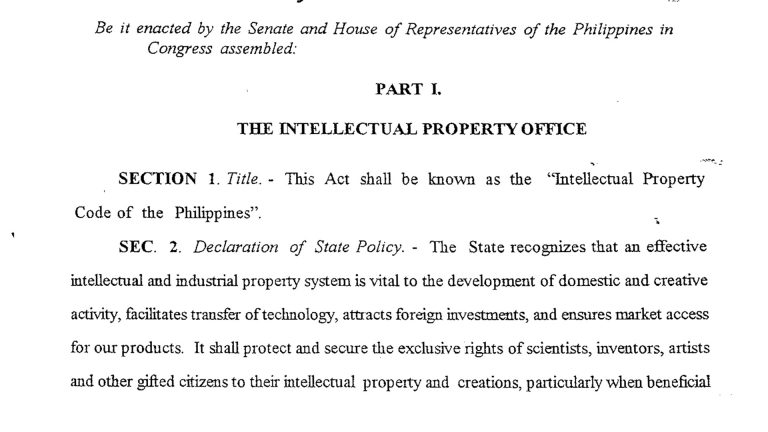
The Republic Act 8293, more known today as the Intellectual Property Code of the Philippines was signed into law by President Fidel V. Ramos on June 6, 1997.
Authored by the late Senator Raul S. Roco, the law took effect on January 1, 1998.
Developed with the assistance of Japan International Cooperation Agency and the Japan Patent Office, the new system aims to prevent filing of marks already registered or with pending applications at IPOPHL.
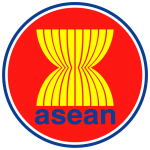
The Philippines, through IPOPHL, assumed chairmanship in August 1997. The Philippines will hold the position for three years and go on to explore the possibility of an ASEAN IP System.
With the IP Code in force, the Bureau of Patents, Trademarks and Technology Transfer (BPTTT) was abolished and the Intellectual Property Office of the Philippines was instituted. IPOPHL’s first headquarters was located in Sen. Gil Puyat Ave, Makati City.
Joining initial consultations on the World Intellectual Property Organization’s (WIPO) Performances and Phonogram Treaty or the “internet Treaties."
IPOPHL led the work in involving relevant copyright stakeholders in formulating the Philippine position to the draft treaty. IPOPHL will continue to actively participate in the succeeding consultations.
Undertaken jointly with WIPO, the project aims to accelerate the pace of IPOPHL’s modernization program on patent administration.
Six implementing rules and regulations were implemented this year. These were on trademarks, voluntary licensing, dispute settlement, utility models and industrial designs, among others.
In IP protection, the E-Commerce Law identifies and defines punishable acts constituting online piracy and database hacking.
The strategic plan aims to modernize IPOPHL’s IP administration systems, launch internet-based searchable databases, an interactive website and an online payment gateway, among others.
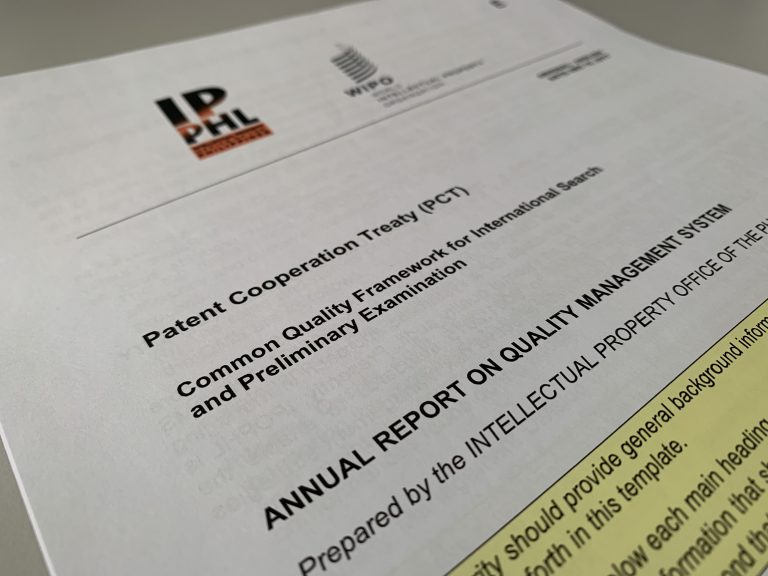
The country became the 112th member of the PCT with the Senate’s ratification in 2001. The accession provides inventors and innovators an easier and less expensive way to obtain patents in foreign markets, particularly in PCT contracting states.
Former President Gloria Macapagal Arroyo enacted into law the bill protecting layout designs of integrated circuits (ICs). Now Republic Act 9150, the law grants IC layout design owners certain rights in the reproduction, selling and commercial distribution of their registered IC layout designs.
IPOPHL started to accept complaints and cases with damages of at least P200,000.
To be held annually every 26th of April, the celebration aims to highlight the importance of IP as a tool for economic, social and cultural development.
Republic Act 9168 or the Philippine Plant Variety Protection Act was signed by President Arroyo. The law provides for the protection of new plant varieties and establishes a National Variety Protection Board where IPOPHL is Vice-Chair.
Republic Act 9329 was signed by President Arroyo in February 2004 to regulate optical media devices in line with ensuring the protection and promotion of IP rights. The law also created the Optical Media Board of which IPOPHL is a member.
The system is designed to facilitate online filing and payment for trademark applications through the IPOPHL website.
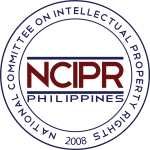
With the NCIPR, IPOPHL coordinated more closely with law enforcement agencies and private sector partners to spearhead IP enforcement in the country. The interagency NCIPR was formally established in 2008 by virtue of Executive Order 736.
The unit — today called the Policy Research and International Affairs Division — was created to enable the agency to lead the development of domestic IP policies and strengthen IPOPHL’s relations with international partners and counterparts. The division is also the main resource of the country’s missions in Geneva and in the Department of Trade and Industry’s (DTI) bilateral and multilateral trade negotiations.
The unit was tasked to implement the copyright mandate of IPOPHL, which is to promote the growth of the creative sector by ensuring the effective use of copyright protection.
In July 2008, President Arroyo issued Executive Order 737 which created the IPRTI. The IPRTI was created to respond to the country’s need for building IP expertise, education and research to make IP more relevant to socioeconomic needs and national goals.
Taking effect in July 2008, Republic Act 9502 or the Universally Accessible Cheaper and Quality Medicines Act Law aims to achieve better health outcomes for the Filipino people by ensuring quality medicines are accessible and affordable especially to the poor. Among others, the law amended certain sections of the IP Code to affirm that IP rights do not prevent members from taking measures to protect public health.
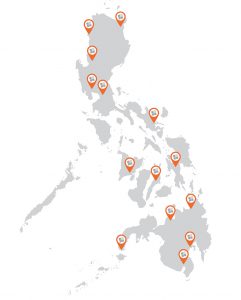
The first IPSO was opened in Cebu by the IP Field Operations Unit (IP-FOU). The IP-FOU was also created this year to mainstream IP in the countryside. There are 17 IPSOs operating in strategic locations across the country.
The rules served to accredit local Collective Management Organizations (CMO) in managing arrangements for copyright licensing, marketing and distribution of members’ works and enforcement of their IP rights. It aims to help the creative industries establish a reliable accreditation system for collection societies.
Republic Act 10055 or the Technology Transfer Act provided the framework and support system for the ownership, management, use and commercialization of IP generated from government-funded research and development.
As Chair, IPOPHL steered the group in, among others, preparing for the bloc’s Strategic Action Plan 2011 -2015 which aims to increase the use of IP in the development and growth of ASEAN.
IPOPHL supported the passage of Republic Act 10088 or the Anti-Camcording Act which aims to curb illegal camcording activities in the country.
The Office was created to promote meditation as a fast, cost-effective track in settling IP disputes.
IPOPHL inked a cooperation agreement with WIPO to establish ITSOs. ITSOs are hosted in universities, colleges and research institutes to strengthen the academic community’s capacity to access patent information and use the patent system. There are 83 ITSOs as of 2022.
A joint undertaking with the Ateneo de Manila Law School, the program saw its pioneer batch joined by three IPOPHL lawyers.
The rules govern civil and criminal actions for IP violation cases lodged in regional trial courts
IPOPHL launched specialized arbitration services that made IPOPHL the only office in the region to offer both mediation and arbitration as alternative dispute resolution approaches.
The Industrial Property Administration System, an automated system developed by WIPO, was fully deployed at IPOPHL. The IPAS enabled not only the full automation of the Office but also elevated its services to international standards in terms of efficiency, quality and transparency.
The Philippines became the 85th contracting party to the Madrid Protocol as former President Benigno C. Aquino signed the instrument of accession. Being the only ASEAN country aside from Singapore to accede to the Protocol, the Philippines became a champion in helping ASEAN neighbors toward accession.
Republic Act 10372 was signed into law, amending certain provisions of the IP Code. The law created the Bureau of Copyright and Related Rights, granted enforcement powers to IPOPHL and strengthened copyright protection, among others.
IPOPHL launched the Patent Protection Incentive Package. This is the Office’s first initiative to push inventors to protect and commercialize their inventions by waiving official fees associated with patent filings.
The program aims to hone the Filipino youth in using IP to spur change in their communities while respecting the IP rights of others. The program also trains the youth to effectively promote IP respect and protection.
Years of intensified efforts at the NCIPR led to the country’s removal in the United States Trade Representative’s Watchlist. The country has been flagged in the list for more than a decade – with Priority status from 2001 to 2005 until it was downgraded to the Ordinary watchlist from 2006 to 2013.

WIPO's Inventors Assistance Program (IAP) was launched as the Philippines was one of the countries chosen for pilot-testing. The IAP matches under-resourced inventors and small businesses with patent attorneys to provide legal advice in filing international patents without professional legal costs.
The game-changing achievement resulted from IPOPHL’s effort in building expertise and proficiency in patent search and examination. The Office gained from WIPO members a unanimous designation, effectively becoming the second ISA/IPEA in the ASEAN after Singapore.
After years of working closely with producers of potential geographical indication goods, IPOPHL grants the first collective mark certificates.
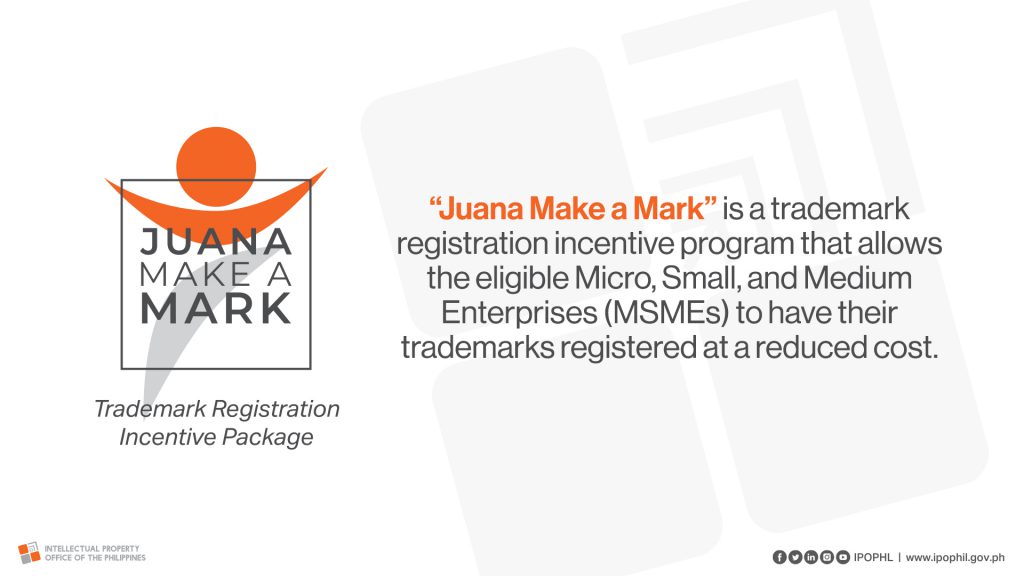
President Rodrigo R. Duterte signed in November the instrument of accession to the Marrakesh Treaty to facilitate Access to Published Works for Persons who are Blind, Visually Impaired, or Otherwise Print Disabled. Works covered include Braille, audiobooks and large-print formats

IPOPHL expanded its alternative dispute resolution (ADR) with the implementation of the Mediation Outside Litigation Service. The approach allows parties to submit their dispute to mediation even before or without filing a case, giving parties the opportunity to reach an agreement at the earliest possible time.
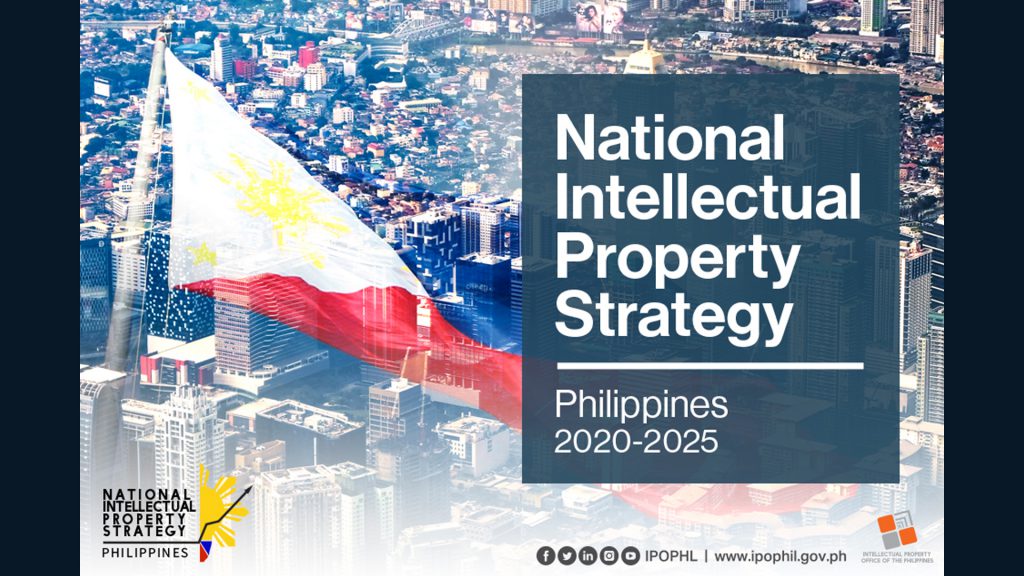
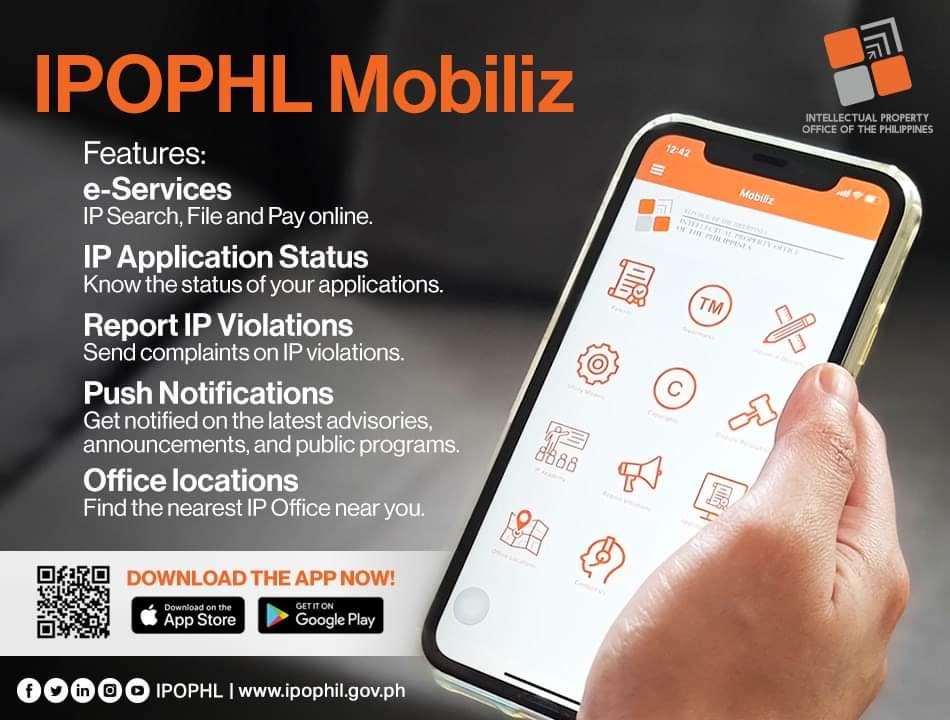
IPOPHL expanded its alternative dispute resolution (ADR) with the implementation of the Mediation Outside Litigation Service. The approach allows parties to submit their dispute to mediation even before or without filing a case, giving parties the opportunity to reach an agreement at the earliest possible time.
The new rules aim to make IP litigation less costly, faster and in sync with newer laws. The push to revise the rules was initiated by IPOPHL following consultations with various special commercial court judges, IP rights holders, and IP organizations.

The first of its kind in the Philippines, the Women in IP e-magazine aims to celebrate women who use IP to make a change for society and for themselves. It also aims to encourage, engage and empower Filipinas to become advocates and active players in IP creation, protection and commercialization.
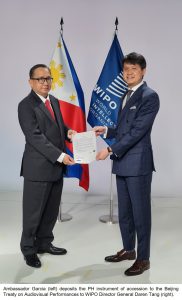
President Rodrigo Duterte signed the instrument of accession to the Beijing Treaty on Audiovisual Performances (BTAP) to strengthen the protection of Filipinos performers’ IP rights globally and applied to all new technologies.
Projects to commercialize uncommercialized patented technologies can finally enjoy incentives from the government under the Board of Investments three-year Investment Priorities Plan (IPP). The IPP also recognizes ITSOs as “Innovation Centers” who can benefit from the incentives.

IPOPHL launched the JFTW Program to enable MSMEs to be competitive in global markets through the successful trademark protection of their brands in their preferred markets within the Madrid Protocol contracting parties.

During the pandemic, IPOPHL published free COVID-19-related Patent Search Information Reports (PSRs), aimed at increasing and speeding up localR&D to fight the virus. The PSRs provide a technological and legal snapshot of select COVID-19 vaccines and medicines approved by the national government for use.

The weeklong Philippine International Copyright Summit (PICS) held in November gathered local and international experts in various creative industries to discuss the latest trends and challenges in copyright regulations and enforcement in their fields.
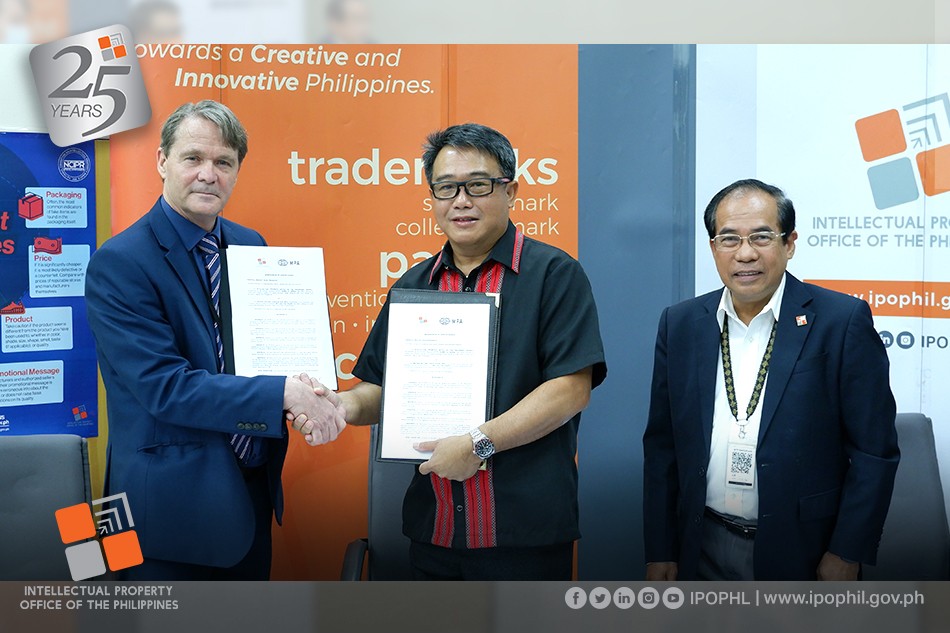
IPOPHL was conferred the “Site blocking in Asia Pacific – Government Leadership Award” by the MPA for its efforts in building a site blocking regime to fight piracy.

IPOPHL launched the Juana Patent and Juana Design Protection Incentive Programs (JPIP) to boost the participation of women inventors and designers in innovation as part of an expansion of the Juana Make a Mark Program.

IPOPHL launched the Learning Activities Workspace (ILAW), becoming the IP office in Southeast Asia to offer an online IP learning system to promote IP awareness.

With the theme, "Creating a Silver Bright Future," IPOPHL aims to help more Filipinos leverage intellectual property and ultimately support the Philippines' journey toward inclusive recovery and economic resilience.



